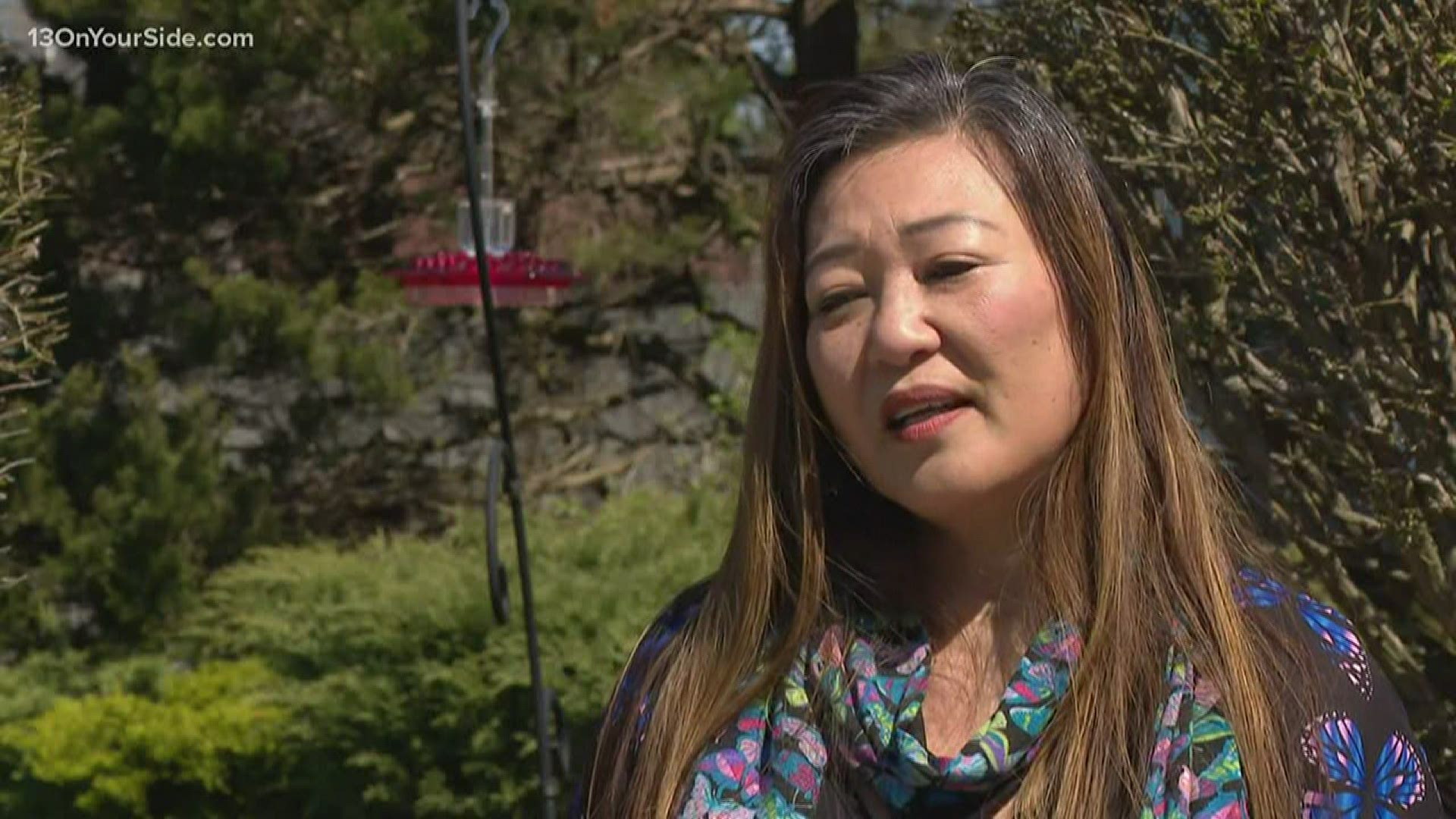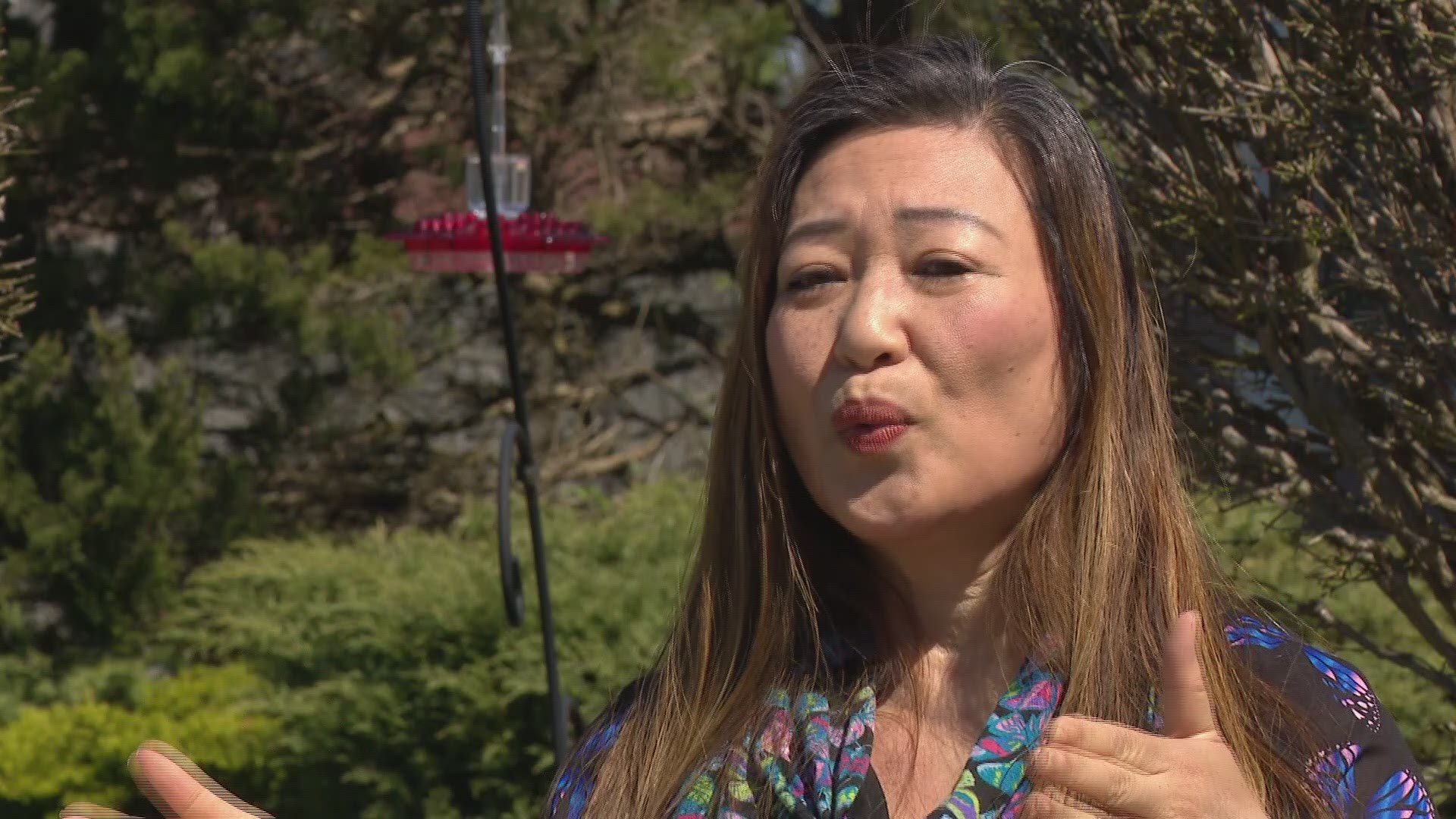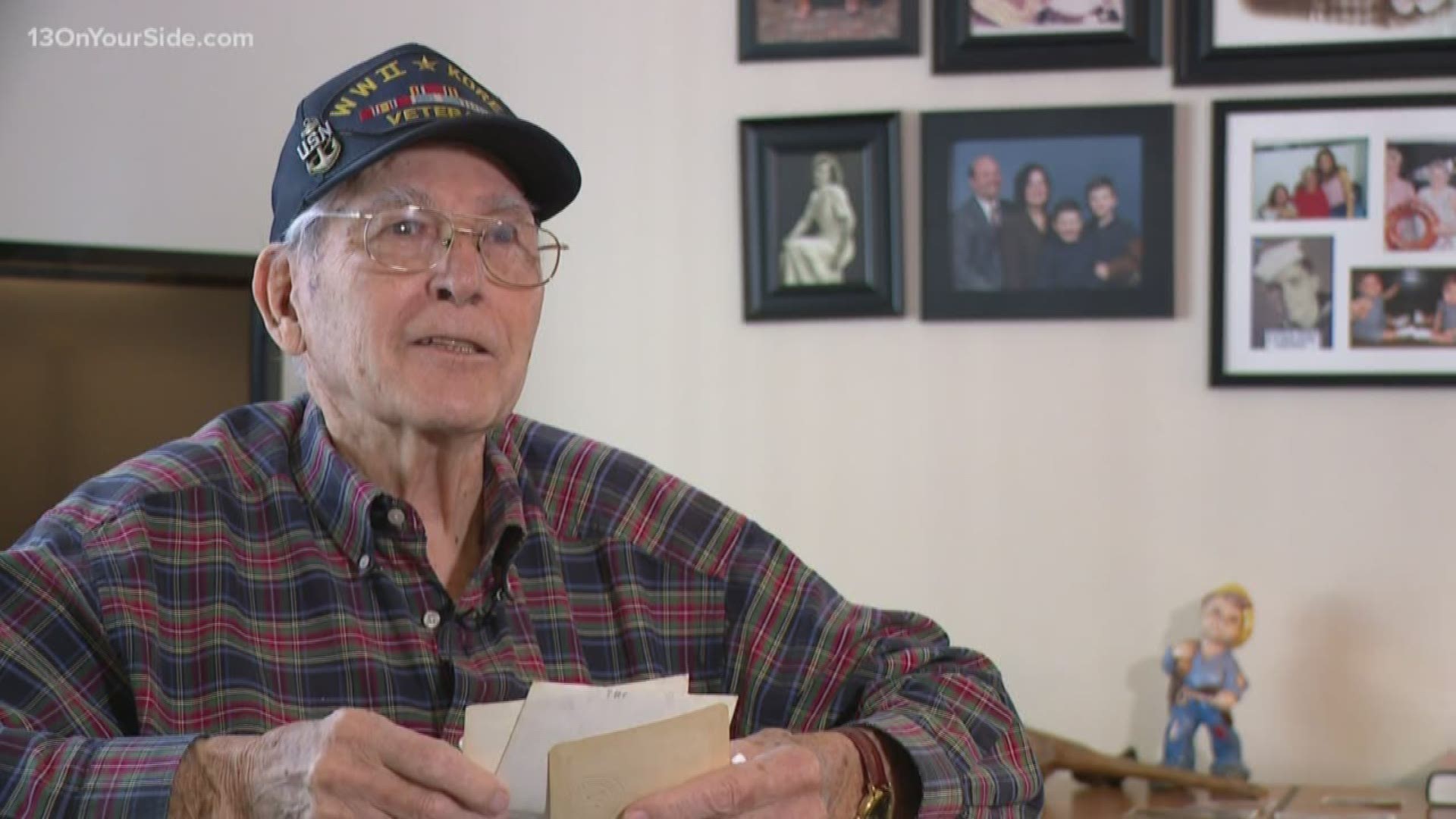GRAND RAPIDS, Mich. — April 30, 1975, marked the 45th anniversary of the 'Fall of Saigon'—an event that ended the Vietnam War and the start of a transition period to the formal reunification of Vietnam into the Socialist Republic of Vietnam.
A West Michigan resident, who is a former Vietnam refugee, recalls she and her family's clandestine escape from the conflict-torn country.
Alice Cao-Kennedy was born in Vietnam in 1962. She lived there until 1970, before moving to Australia, then returning to her homeland in 1973.
"I was sheltered all the time," said Alice, 57, describing her childhood in war-torn Vietnam. "Everywhere we went, we had an escort."

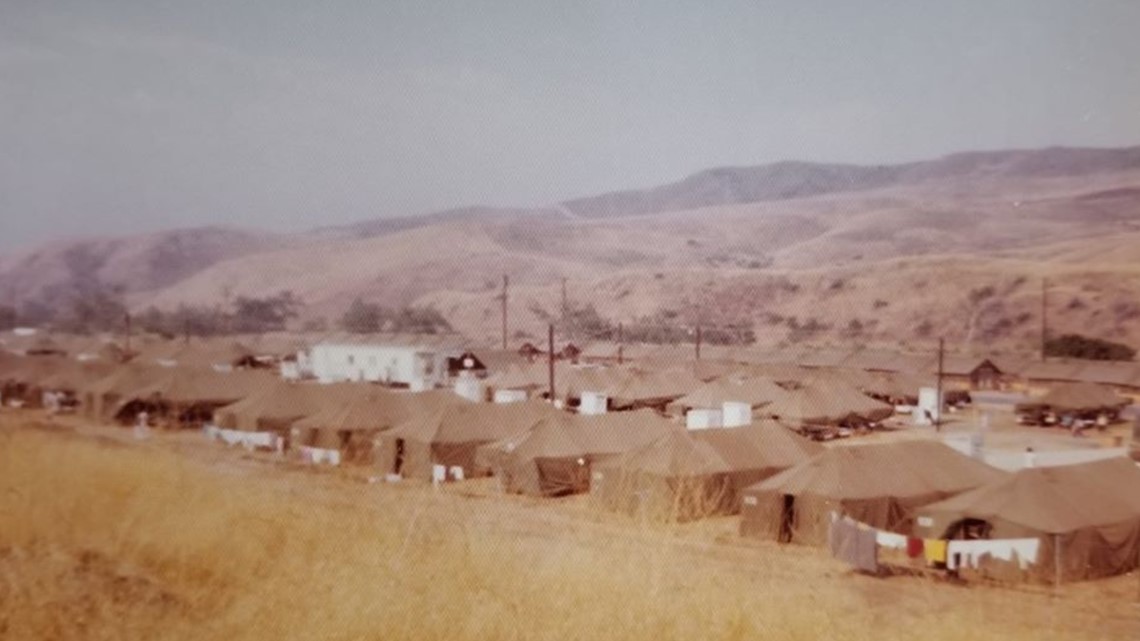
Alice remembers tear gas in the streets and constant gunfire and bombs being heard.
"The gunshots and bombs that would be dropped would shake our house and our windows would open," said Alice. "Everybody was just running all the time, including myself.
"My childhood was not like playing with dolls and teacups; it was pretty much being taught to survive."
In late April of 1975, Alice's father, Chau Cao, who was a colonel in the South Vietnamese Army, told his family there was a plan to escape.
"We had a drill," said Alice. "We were told, 'If we wake up, you are to wear this and take this backpack."
At 6 a.m. on April 24, 1975, their escape began.
"I was awoken and told it was time," said Alice. "We were taken to a (local airport in Vietnam) where we waited for the rest of our family."
To this day, 45 years later, Alice says it's hard for her to talk about.
"When we said 'goodbye', we didn't know my dad wasn't coming with us," said Alice. "So, when he said, 'goodbye', [my father] told my brother, 'You're the man of the family now; make sure to take care of your mom and your sisters.'
"I was heartbroken."
Alice and her family flew from Saigon to the Philippines, then to Agana, Guam, where they stayed for six days before they landed in southern California, where they spent six months at Camp Pendleton.
"During that time, there were two of three months where we didn't know if [my father] was alive or not," said Alice. "Every day we would check a board where there was lists of names of people who were able to get out and those who were deceased.
"Thankfully, my dad was alive and made it to Fort Chaffee, Arkansas."
Soon after the 'Refugee Resettlement Program' was initiated by President Gerald Ford, Alice, and her family were reunited with her father, Chau Cao, in Grand Rapids.
"We could have gone anywhere," said Alice. "We had family in France and in Canada. But because Grand Rapids had a resettlement program, my dad just said, 'You know, this place is the place to be and we're going to make it our home."

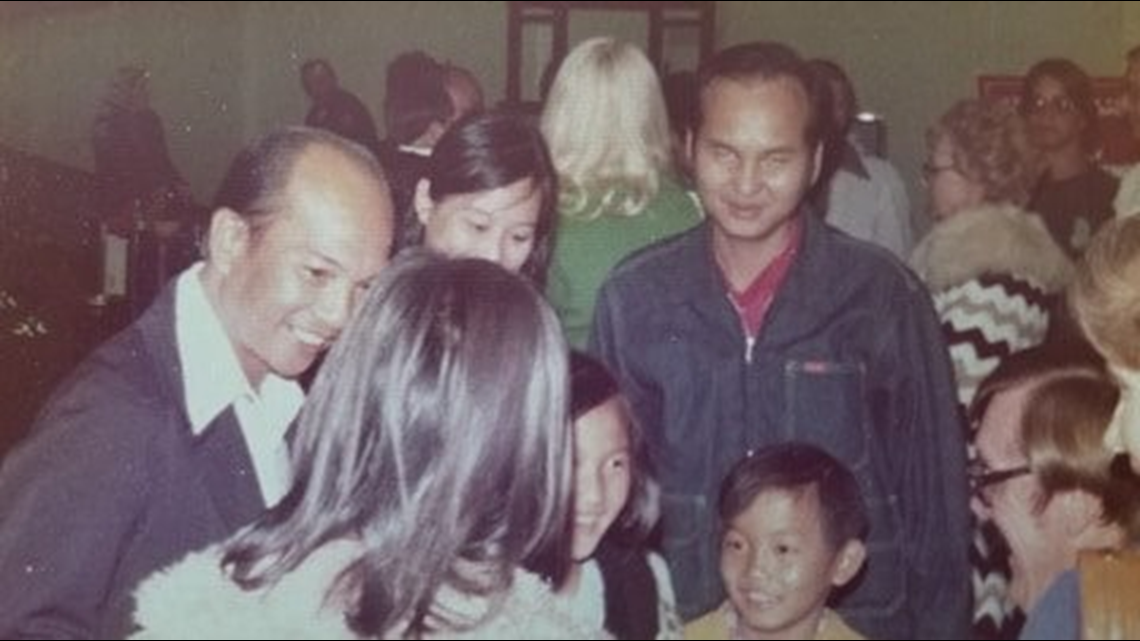
The Refugee Resettlement Program was initiated by West Michigan Rev. Howard Schipper, who approached then President of the United States, and Grand Rapids native, Gerald Ford, asking for money to initially relocate 100 Vietnamese families to Grand Rapids.

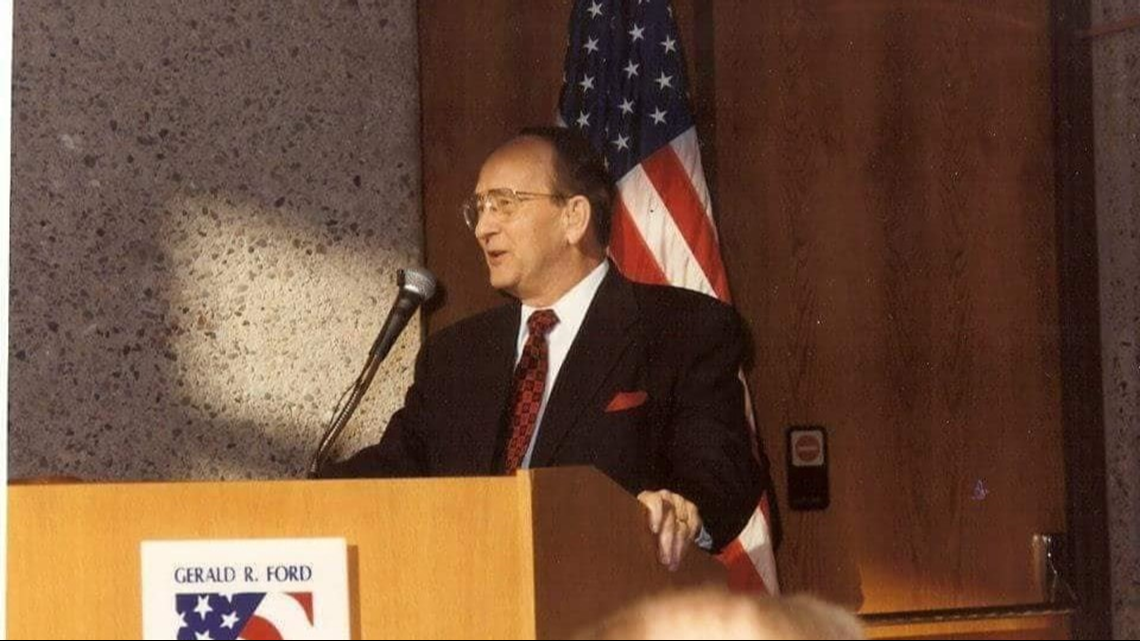
"President Ford approved the money for Rev. Schipper to do that," said Alice. "A lot of area churches were involved in finding host families to bring us here.
"Without those two men doing what they did when they did, we wouldn't be here."

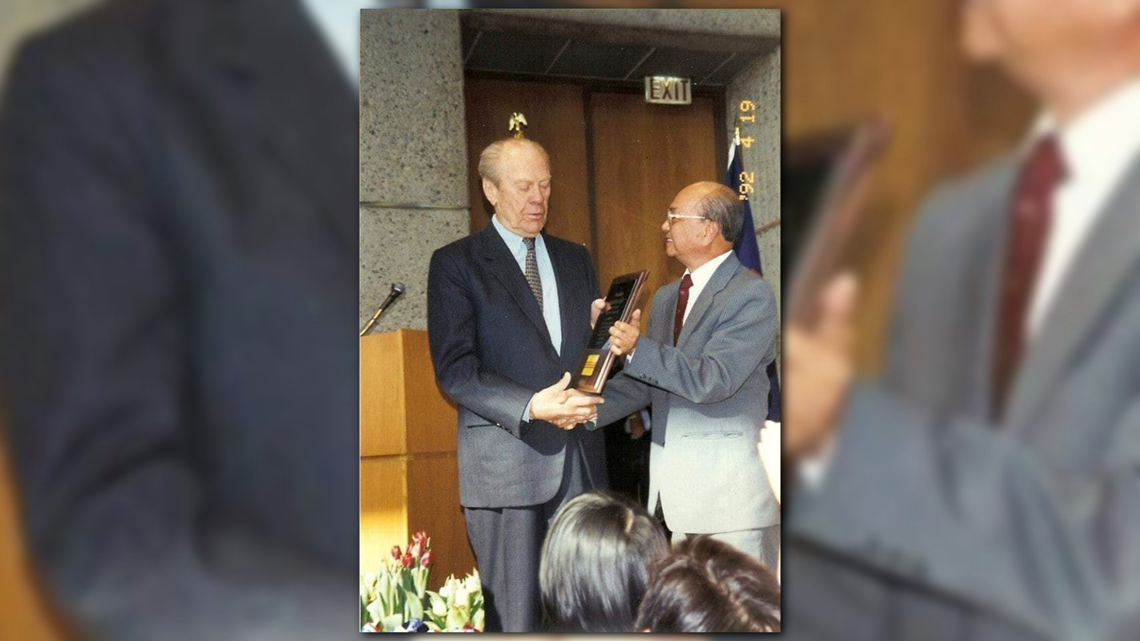

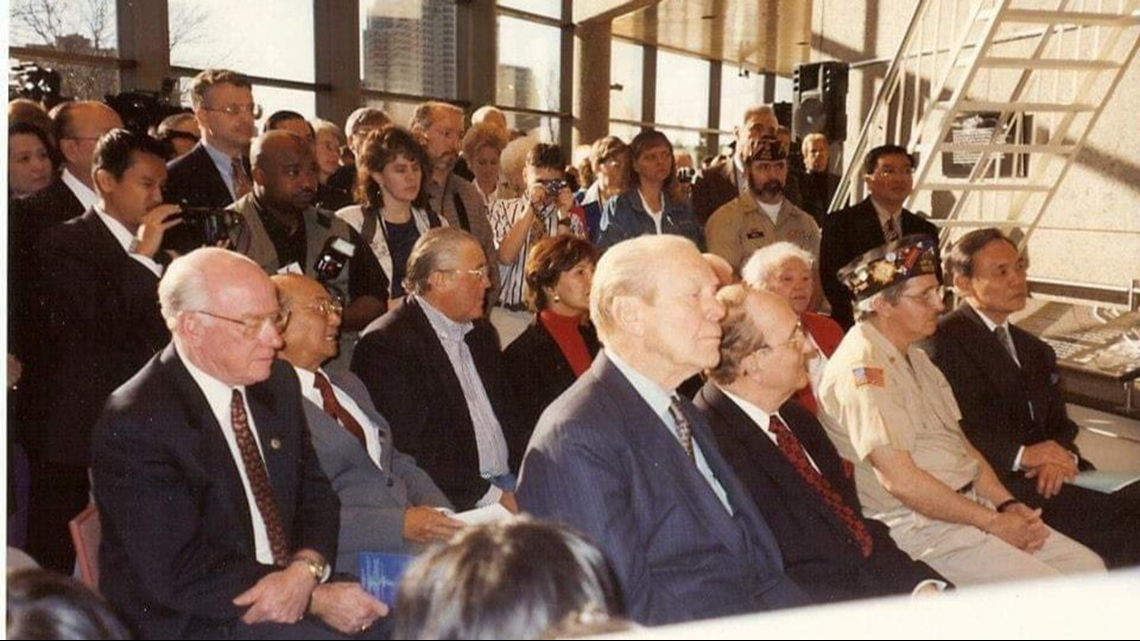

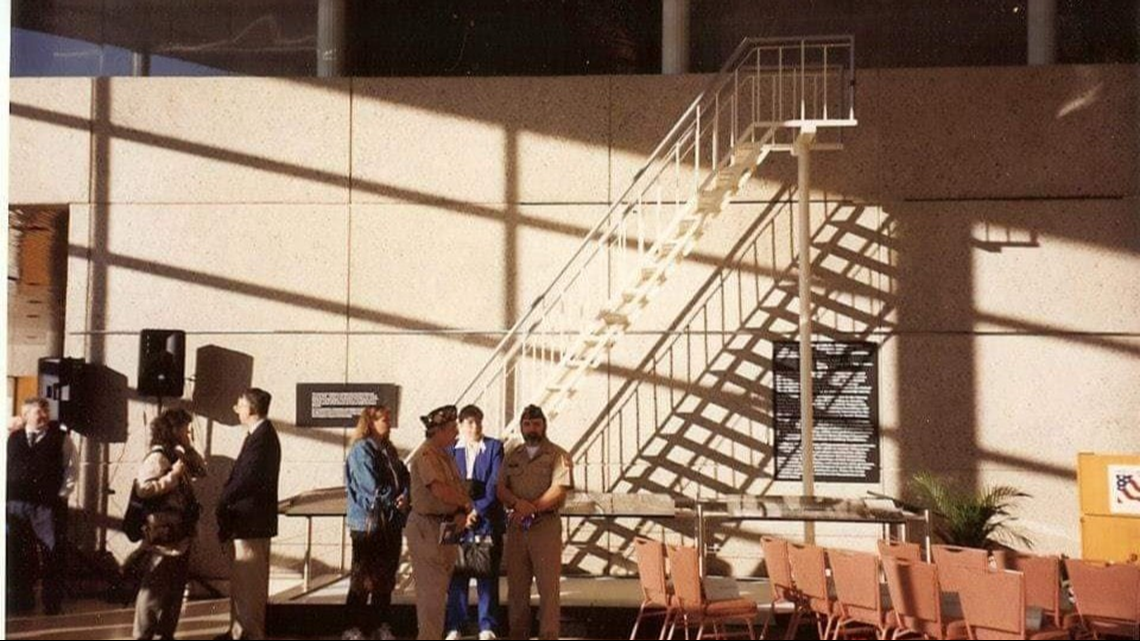
In 1999, a staircase that was used by Vietnam refugees during their escape from Saigon, was dedicated at the Gerald R Ford Presidential Museum. Former President Gerald Ford was in attendance.
"My dad gave President Ford a plaque of appreciation from the Grand Rapids Vietnamese community," said Alice.
Chau Cao passed away in Grand Rapids March 15, 2013.
Alice's mother, Yen Cao, 86, currently resides in Rockford.
"I will always vividly remember what happened 45 years ago," said Alice. "I found a freedom I never knew before."
More stories on 13 ON YOUR SIDE:
RELATED VIDEO:
►Make it easy to keep up to date with more stories like this. Download the 13 ON YOUR SIDE app now.
Have a news tip? Email news@13onyourside.com, visit our Facebook page or Twitter. Subscribe to our YouTube channel.

